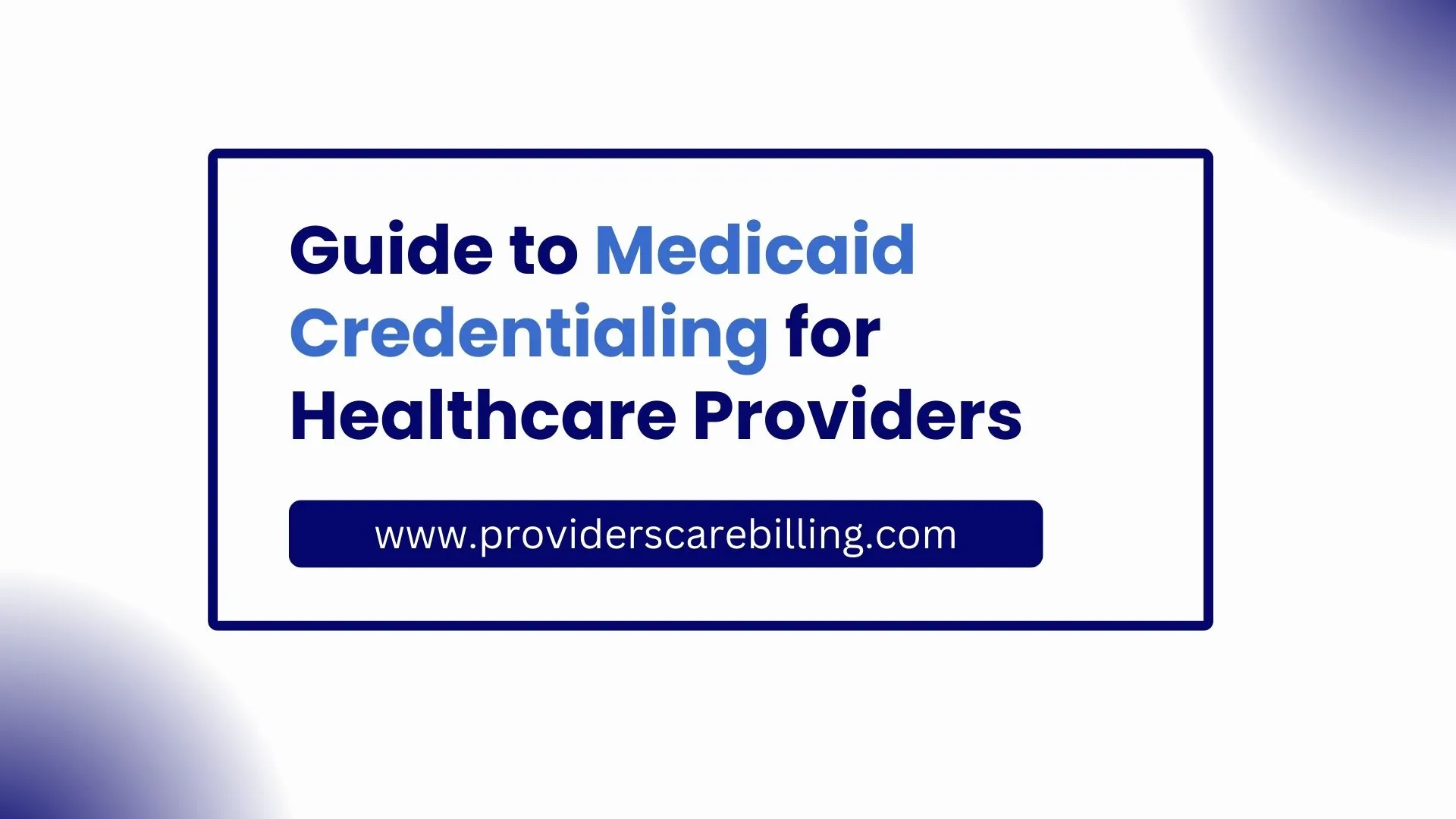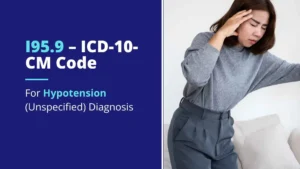Medicaid Credentialing is an essential process for healthcare providers who wish to serve Medicaid patients. For many, solving the complexities of healthcare provider credentialing can feel overwhelming—but it doesn’t have to be. Whether you’re a physician, clinic administrator, or government agency official, understanding how this process works can open new doors for patient care and increase revenue opportunities.
This guide breaks down Medicaid Credentialing, from the enrollment process and eligibility requirements to best practices for avoiding common mistakes. By the end, you’ll have a clear roadmap to complete your credentialing and streamline Medicaid billing, while ensuring compliance along the way.
What is Medicaid Credentialing, and Why Is It Important?
Medicaid Credentialing is a vetting process that allows healthcare providers to participate in the Medicaid program. It ensures that providers meet federal and state requirements to deliver services to patients on Medicaid.
Why Does Medicaid Credentialing Matter?
- Expand Your Patient Base: Medicaid Credentialing allows you to provide care to underserved populations.
- Increase Revenue Streams: Healthcare providers can access Medicaid billing for reimbursement of services provided to Medicaid-covered patients.
- Build Trust: Credentialing demonstrates compliance with legal standards, reinforcing patient confidence in your services.
Without proper credentialing, providers risk not being reimbursed for services delivered to Medicaid patients—which can directly impact operational cash flow.
Understanding the Medicaid Enrollment Process
Entering the world of Medicaid starts with understanding its enrollment process. This is a multi-step procedure designed to determine whether a healthcare provider meets Medicaid’s qualification standards.
What’s Included in the Medicaid Enrollment Process?
- Submission of Information:
- Prepare documentation such as licenses, tax IDs, and certificates.
- Include any specialty certifications and professional references.
- Application Review:
- Medicaid verifies your credentials, federal and state compliance, and documentation.
- Approval Decision:
- Once approved, you’ll receive a Medicaid Provider Number, granting authorization to bill Medicaid for reimbursable services.
Timeframes for approval can vary by state, so review the process early to avoid delays that could disrupt your service offerings.
Who is Eligible for Medicaid Credentialing?
The eligibility criteria for Medicaid Credentialing depend on individual state regulations and provider type. Below is an overview of common eligibility considerations:
Key Eligibility Requirements:
- Licensed Providers: Physicians, nurse practitioners, therapists, and other licensed professionals must hold valid certifications and permits within their field of practice.
- Facility-Based Providers: Clinics, hospitals, and other patient facilities must comply with state and federal regulations.
- Specialty Practices: Dental, vision, and behavioral health practices must meet Medicaid-specific guidelines for their areas.
- Compliance with Medicaid Standards: Providers must demonstrate compliance with Medicaid fraud prevention measures and billing standards.
Verifying these requirements beforehand ensures a smoother credentialing experience.
Step-by-Step Guide to Completing the Medicaid Credentialing Application
- Gather Your Documentation:
- Multistate licenses and DEA certificates
- Practice details, such as Tax Identification Numbers (TINs)
- Insurance documents and provider agreements
- Submit Your Application:
- Complete the Medicaid Provider Enrollment application via your state’s Medicaid website.
- Ensure all fields are completed, and supporting documents are attached.
- Verification Process:
- Medicaid authorities will review your application, verifying compliance and eligibility.
- Respond promptly to any follow-up requests for missing documents.
- Obtain Your Provider Number:
- Once approved, you will receive an official Medicaid Provider Number.
- Start Serving and Billing Medicaid Patients:
- You’ll now be able to provide services to Medicaid patients and submit Medicaid billing for reimbursement.
Common Pitfalls to Avoid During the Credentialing Process
Even experienced professionals can encounter challenges during healthcare provider credentialing. Below are common issues to watch out for:
- Incomplete Applications:
Missing information is one of the leading causes of credentialing delays. Double-check your application before submission.
- Outdated Licenses:
Ensure all licensing and certifications are current—expired credentials will result in automatic rejection.
- Misunderstanding State-Specific Rules:
Medicaid rules vary from state to state. Familiarize yourself with your state’s unique requirements before initiating the process.
- Failure to Monitor Application Status:
Follow up regularly to check on the progress of your application and address any flagged concerns immediately.
The Role of Medicaid in Provider Reimbursement and Billing
After credentialing, providers can begin billing Medicaid for services rendered. Understanding the relationship between Medicaid Credentialing and billing is essential to minimize errors and optimize revenue.
Key Components of Medicaid Billing:
- Accurate Documentation:
Medicaid requires itemized service records with detailed coding.
- Error-Free Claims:
Claims with errors or incomplete information often result in payment delays.
- Adherence to Fee Schedules:
Ensure all services adhere to Medicaid’s approved fee schedules for reimbursement.
Ensuring Accurate Medicaid Billing for Providers
Accurate Medicaid billing is critical—not only for financial stability but also for maintaining compliance. Errors in billing can lead to audits or reduced reimbursement.
Tips for Accurate Medicaid Billing:
- Stay Updated on Policies:
Rules and fee schedules change periodically. Staying informed prevents billing missteps.
- Leverage Technology:
Software solutions or experienced partners can simplify coding, claims management, and compliance.
- Train Your Staff:
Regular training ensures your team understands the nuances of Medicaid billing.
By focusing on billing accuracy, you can optimize your practice’s cash flow while staying compliant with Medicaid requirements.
Take Control of Medicaid Credentialing with Expert Support
Dealing with Medicaid Credentialing doesn’t have to be a daunting process. By understanding the steps involved, aligning with state-specific requirements, and avoiding common pitfalls, healthcare providers can unlock a broader patient base and streamline reimbursement workflows.
Looking for a trusted partner in managing credentialing or Medicaid billing for your practice? Providers Care Billing LLC, based in Illinois, USA, specializes in comprehensive medical billing and coding services. From credentialing to claims submission, our team of experts ensures your practice stays compliant and profitable.
Contact Providers Care Billing LLC today to simplify Medicaid Credentialing and billing for your healthcare organization.




